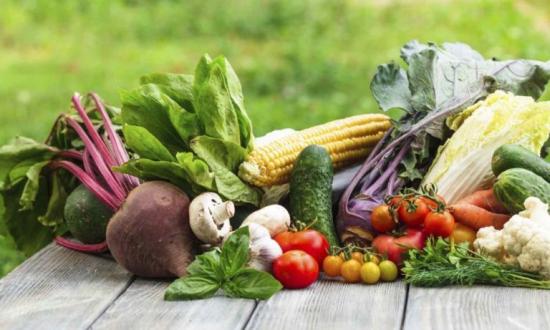
Fran Drescher: “Use your power of purchase”

As Founder, President, and Visionary of the nonprofit Cancer Schmancer Movement, Fran focuses on three prongs to fight the disease: early detection, prevention, and advocacy. A 16-year uterine cancer survivor, her mission is to shift America’s focus toward proactive health care and healthy, toxin-free living. She believes that that the best cure for cancer is not getting it in the first place and wants to help those afflicted with terminal illnesses to improve their diets and wellbeing through sustainably sourced and produced foods.
Fran also played Miss Fine on CBS’s hit series The Nanny, which she both created and executive produced, earning two Emmy and two Golden Globe nominations. Food Tank had the chance to speak with Ms. Drescher about her work emphasizing the important connections between diet, health, and the environment.
Food Tank (FT): What originally inspired you to get involved in your work?
Fran Drescher (FD): I got famous, I got cancer, and I lived to talk about it. My life mission is to leverage my fame to educate the public that we are what we eat. Food is medicine, and medicine is food.
FT: What makes you continue to want to be involved in this kind of work?
FD: Because of my celebrity, I have the benefit of people from all over the world who reach out to me through social networks, and in person as well, telling me that my efforts, and that of Cancer Schmancer, changed their life—saved their life—and that keeps me going.
FT: Who inspired you as a kid?
FD: Phil Donahue, Julia Childs, Dinah Shore, Lucille Ball
FT: What do you see as the biggest opportunity to fix the food system?
FD: An exodus from industrial farms, and the return of the family farm that employs: biodynamic, regenerative, organic non-GMO sustainable practices.
FT: Can you share a story about a food hero who inspired you?
FD: Yes, several. Two of my heroes: Dr. Shiva Ayyadurai, a systems biologist from MIT, taught me about the body as a system, and how we know what foods to eat, why we should eat them, and when. Also the ancient wisdom of foods as medicine from indigenous cultures. And Don Smith of Kiss the Ground Org.
FT: What’s the most pressing issue in food and agriculture that you’d like to see solved?
FD: Once the public re-learns that we are what we eat, they will understand that industrial farms is why we are such a sick nation. And then, we will end the consuming of animals and plants filled with pesticides, herbicides, hormones, antibiotics, and GMO Round-Up Ready.
FT: What is one small change every person can make in their daily lives to make a big difference?
FD: Detox their home. Use your power of purchase to dictate more responsible manufacturing trends.
FT: What advice can you give to President Trump and the U.S. Congress on food and agriculture?
FD: Offer subsidies to farms that are organic, bio-dynamic, and non-GMO. And, incentivize Round Up Ready farmers to, each year, take some acreage and dedicate it to growing plants for soil regeneration, biodynamic, and organic practices. Finally, incentivize livestock farmers to raise all animals as pastured, hormone free, antibiotic free, non-GMO, grass-fed, and on grazing diets.
Find out more at Foodtank







